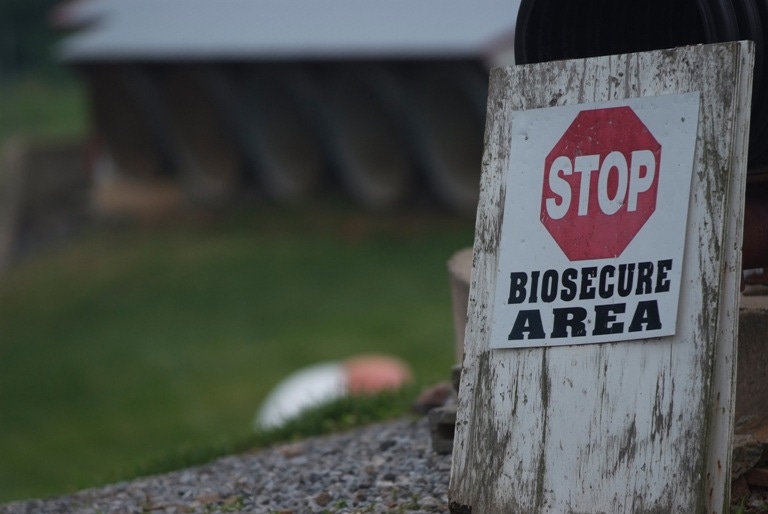What are best practices for interviewing potential employees, and is it legal to take employee temperatures before entry on farm?

"If you work in a critical infrastructure industry, as defined by the Department of Homeland Security, such as healthcare services and pharmaceutical and food supply, you have a special responsibility to maintain your normal work schedule."
Those are the words President Trump issued March 16 under the Coronavirus Guidance for America, as the nation comes together to slow the spread of COVID-19. For U.S. pork producers, that special responsibility is not taken lightly, but a normal work schedule could be interrupted if an employee should fall ill to COVID-19. How soon can that employee come back after he or she recovers? What precautions should producers take when hiring new employees? Is taking employee temperatures an acceptable measure?
These are all questions I'm sure have crossed U.S. pork producers' minds over the last week. Thankfully the National Pork Board has dedicated an entire page to resources and information on COVID-19, emergency planning tools and recommended control measures.
Here are just a sample of questions they address regarding best practices for farms and farm employees during this time.
Is there a protocol for on-farm entry during the COVID-19 outbreak?
At times of heightened biosecurity needs such as now, no general visitors should enter a production facility for the well-being of all farm workers, their families and the community.
Any employee should stay home if sick for any reason. If an employee has been in a high-risk area known for COVID-19 or has been in contact with someone who has, they should self-quarantine for at least 14 days per recommendations by the U.S. Centers for Disease Control and Prevention.
When can you let an employee back on the farm following a known COVID-19 disease diagnosis and isolation?
As of March 23, the CDC's guidance following a known disease occurrence of COVID-19 is employees are OK to lift their isolation and return to work if the following conditions are met.
It has been at least seven days since the onset of their disease.
They have been fever-free for at least three days without the use of fever-reducing medication.
They are currently free of any symptoms of disease.
Alternatively, with improving signs, the resolution of fever and two negative tests 24 hours apart, the isolation also can be lifted. This approach is considered the test-based strategy approach and is dependent upon the availability of test kits.
What are the best practices for hiring/onboarding/interviewing potential employees?
For now, virtual interviews are a best practice. However, when an in-person meeting is needed or when the new hire first starts to work, know what questions are legal to ask and which are not. According to Faegre Drinker Biddle & Reath LLP, good rules to remember are:
The Americans with Disability Act prohibits employers from conducting medical examinations of applicants before a conditional offer of employment is made (including taking temperature).
If a conditional offer of employment has been made, the ADA permits employers to conduct a pre-employment medical examination (which could include taking temperature), provided all employees in the same job category are treated the same.
Without requesting specific medical information, however, you can request anyone exhibiting symptoms, feeling sick or recently exposed to someone testing positive/presumed positive or is in a high-risk scenario (such as recent international travel) remain at home and not visit the facility.
As an employer, communicate the necessary health requirements to work on the farm, including posting signs at facility entrances with instructions for individuals with a fever or symptoms on how to notify those in charge before they enter a farm facility. Post on your farm's website as well if possible.
What are the best practices before allowing new or existing employees to come onto a farm? Is it legal/feasible to require temperature checks for employees?
Typically, implementing employee temperature checks is not advisable. However, the Equal Employment Opportunity Commission revised guidance on March 18 and due to the community spread of COVID-19, employers may measure employees' body temperature.
Because taking a temperature may be considered a medical examination, it is recommended producers use medical personnel to do so, for both risk avoidance and perception reasons. Alternatively, use someone in human resources or another management position.
Because this is a medical examination, the results need to be kept confidential, which makes a checkpoint difficult. A workaround could be having a drive-thru checkpoint, which also would avoid individuals congregating in one space. As such, it's recommended that no records be created for normal temperatures, so you don't have to worry about maintaining confidentiality of medical records.
The CDC is advising that 100.4 degrees is a cutoff point for sending employees home, but some employers are rounding down to 100 degrees. Note that not all individuals testing positive have a fever. Individuals who feel sick but not feverish should stay home, as well as those who have been recently exposed.
About the Author(s)
You May Also Like





